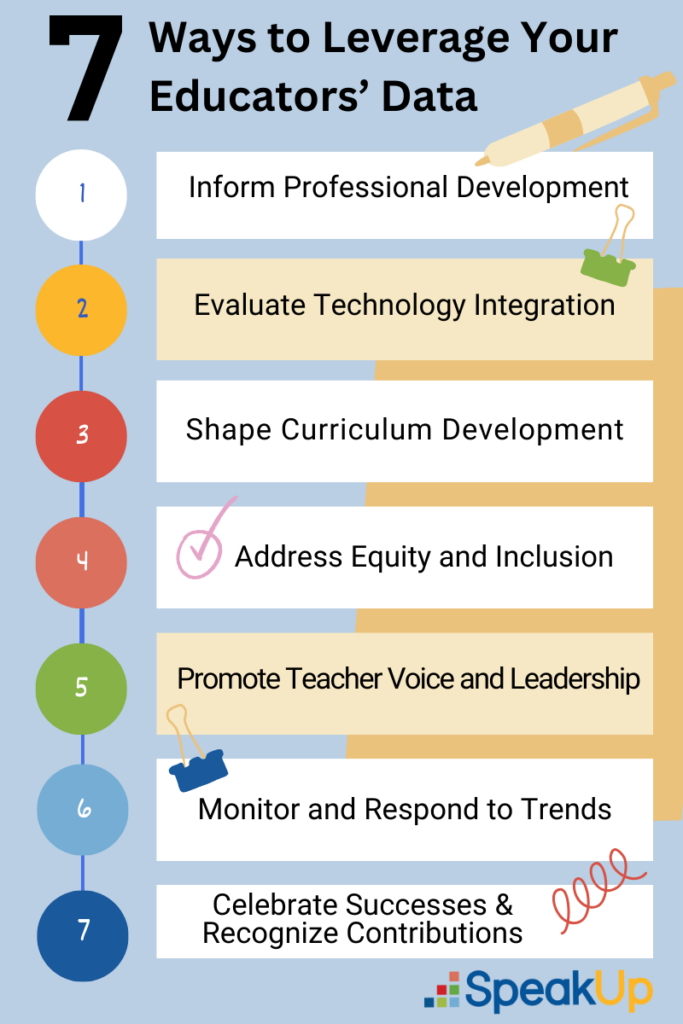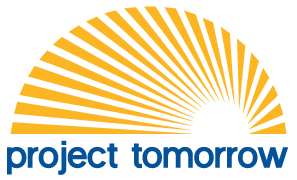Use your Educator Speak Up Data
As the end of the school year approaches, we are sharing how to harness insights from your Speak Up data to inform decision-making and drive positive change over the summer. Below this list, you’ll find an outline of the Speak Up questions aligned to each objective.

Understanding the perspectives, needs, and preferences of your educators is paramount to fostering a supportive and effective learning environment. We believe in the power of teacher voice and the importance of leveraging data effectively. Outlined below are the 7 ways to use your educators’ responses to Speak Up with which questions to to look at. This is not an exhaustive list. You can reach out to the Speak Up team if you want to collaborate.
- Inform Professional Development: Identify areas where teachers feel they need additional training or support. Key questions to examine are 8, 10, 15, 20, 23, 25, 32
- Evaluate Technology Integration: Analyze educator data to understand how teachers are currently using technology in the classroom and their comfort level with different tools. Use this information to refine and improve existing programs and inform future decision-making. Key questions to examine are 6, 7, 21, 22
- Shape Curriculum Development: Gain insights into teachers’ perspectives on curriculum effectiveness, content preferences, and areas for improvement. Use this data to inform curriculum development processes and ensure alignment with teachers’ instructional priorities. Key questions to examine are 5, 17, 19
- Address Equity and Inclusion: Analyze educator data to identify disparities in access to resources, opportunities, or support among teachers. Develop targeted initiatives to address these disparities and promote equity and inclusion within the district. Key questions to examine are 11, 12, 13
- Promote Teacher Voice and Leadership: Use educator data to identify opportunities for teachers to contribute their expertise, ideas, and feedback to district-wide decision-making processes. Foster a culture of teacher voice and leadership by involving teachers in committees, task forces, and planning initiatives. Key questions to examine are 26, 31, 34
- Monitor and Respond to Trends: Regularly analyze educator data to identify emerging trends, patterns, or issues within the district. Use this information to proactively address challenges, capitalize on opportunities, and adapt district strategies to meet evolving needs. Key questions to examine are 27-30 (AI related)
- Celebrate Successes and Recognize Contributions: Use educator data to highlight and celebrate successes, achievements, and innovations among teachers within the district. Recognize and reward teachers for their contributions to student learning, professional growth, and the overall success of the district. Key questions to examine are 24, 32, 33
Email speakup@tomorrow.org to learn more.

